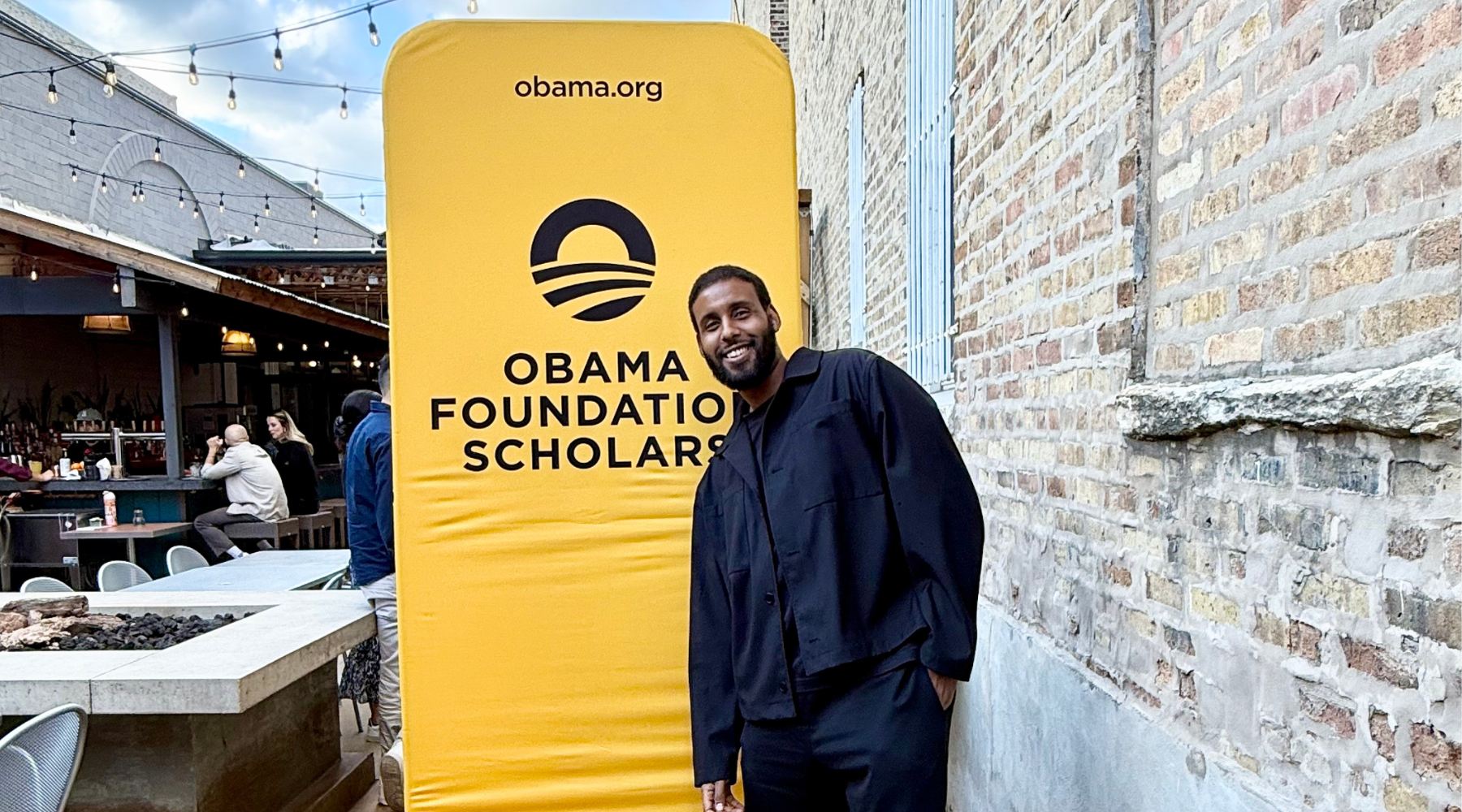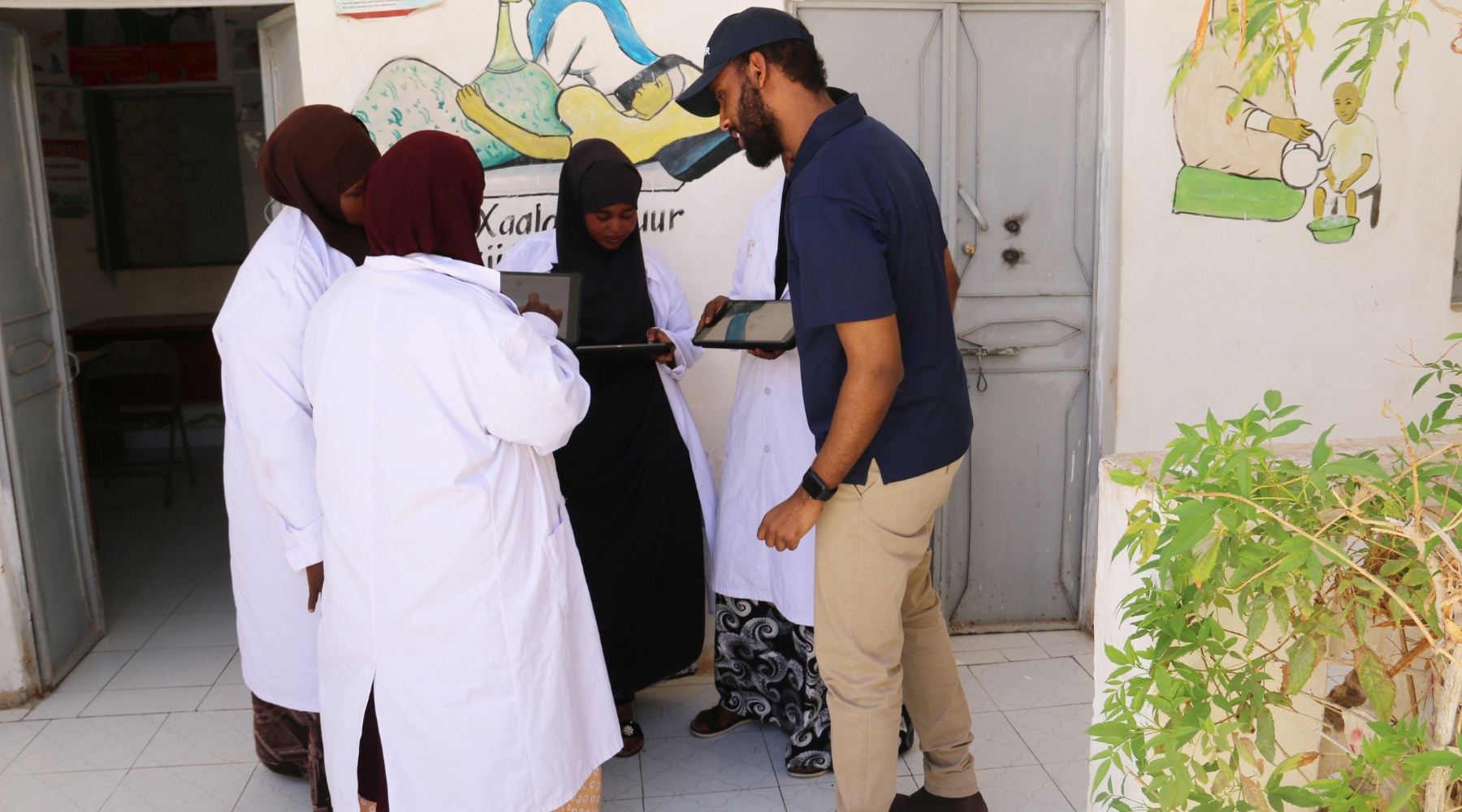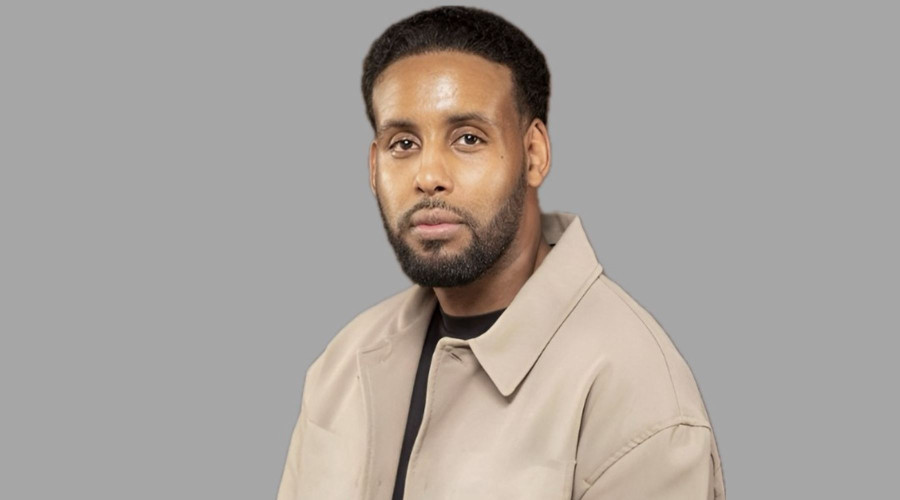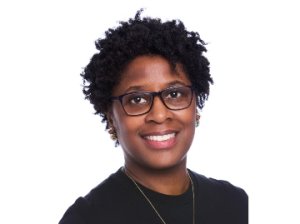If you’re Khalid Hashi, you sell $10 pins and build a digital health platform that now powers over 700 clinics across East Africa.
The Canadian Somali founder of OGOW Health has been selected for the Obama Foundation Scholars Program at Columbia University —one of the most competitive leadership residences in the world. Out of thousands of applicants, he was one of the chosen few.

Hashi’s journey began nearly a decade ago, when he travelled to Somalia to meet his grandmother for the first time. “My grandmother was the only grandparent I would ever meet,” he says. “When I learned she was ill, I knew I needed to be there, to spend time with her and connect with my family.”
What should have been a time for connection became a crash course in systemic failure. Paper records disappeared. Test results were duplicated or mistranslated. Navigating her health care became an emotional maze.
“In those clinic visits, it became clear how overwhelming the system was not just for my family, but also for health workers, and for me personally as I tried to make sense of her care journey.”
Hashi saw a health system failing millions of families just like his own.
“That experience pushed me to act,” he recalls. “I started selling $10 pins to raise funds, and we were able to launch a small pilot. From there, the journey grew, building partnerships, bringing on advisors, and forming a dedicated team.”

What does the platform do, and who does it help?
Imagine you’re a mother in rural Somalia. Your baby needs vaccinations, but there’s no reminder system, no digital records, and the paper card you received at the clinic could easily be lost or damaged. You don’t know when to return or which immunizations are critical. One missed appointment could mean your child goes unprotected against preventable diseases. And imagine you’re a nurse at a health centre, combing through hundreds of pages in a book to figure out whether that child has received their latest immunization.
This is where OGOW Health steps in. The platform digitizes patient records and sends SMS and audio reminders directly to mothers’ phones, telling them exactly when their children need to come back for essential care.
{https://www.instagram.com/reel/DIIgzKygBj8/?igsh=NG5nNmZkaW1keXJl }
The name OGOW Health comes from the Somali word for the verb “to know”. The impact is profound. Mothers who once had no knowledge of their children’s vaccination schedules are now well-informed and able to plan ahead. They receive timely reminders that help them prioritize appointments, ensuring their children get the immunizations they need at the right time.
For families living day-to-day, it provides peace of mind. For health workers, it replaces chaotic paper systems with a simple digital interface that tracks every patient’s journey—who’s due for follow-ups, which children need vaccinations, and what care has already been delivered.
“One story that always stays with me is that of Mama Siciido, a head nurse and one of our early adopters,” Hashi shares. “Initially, she was hesitant about embracing new technology and innovation, having spent many years working in an analog system and being one of the more senior nurses in our network. However, over time, she not only adapted but became a true community champion.”
{https://www.youtube.com/watch?v=_sQeMtDn7KI}
Today, Mama Siciido serves as a trainer and advocate, often sharing her experience in trainings, seminars, and with new nurses. She speaks about how the OGOW Health has transformed her workplace—making it easier to track returning patients and ensure no one misses essential care. Her journey reflects what the platform has become: a bridge between traditional healthcare practices and a new, more connected approach to care.
Scaling with community at the centre
What began as a small GoFundMe quickly became a movement: clinics requested demos, diaspora developers stayed up late building websites, advisors opened doors, and even institutions like MIT and South Park Commons came calling.
“Over the course of a year, we collaborated with IDEO.org, Gates Health, and other partners to reimagine more just and equitable health ecosystems across the region,” says Hashi. “That journey also helped us build lasting partnerships with organizations such as UNICEF, World Vision, Save the Children, Action Against Hunger, and others to strengthen health and nutrition programs at scale.”
When it comes to expanding OGOW, Hashi says listening is key.
“It’s about sitting with health workers, mothers, and frontline workers and asking them what they need to succeed,” he explains. “That means co-design workshops, testing features directly in clinics, and creating feedback loops that let us improve constantly.”
What comes next?
Now, representing Canada at Columbia’s 10-month residency with Columbia World Projects, Hashi carries dual responsibility.
“For me, this platform is about honouring both of my identities—as a proud Canadian and equally proud Somali.”
He plans to spotlight Canadian innovators with ties to the Global South, sharing lessons on international engagement and accessing funding to scale sustainable solutions.
What excites him most isn’t the accolades—it’s the possibilities ahead: closing critical gaps in care with technology, expanding OGOW while strengthening local ownership, and showing that innovation can emerge anywhere with perseverance, purpose, and opportunity.
From his grandmother’s illness to Obama’s attention, Hashi’s journey shows that the most powerful credentials aren’t degrees—they’re lived experience, community trust, and the courage to act when it matters most.

 By
By 




